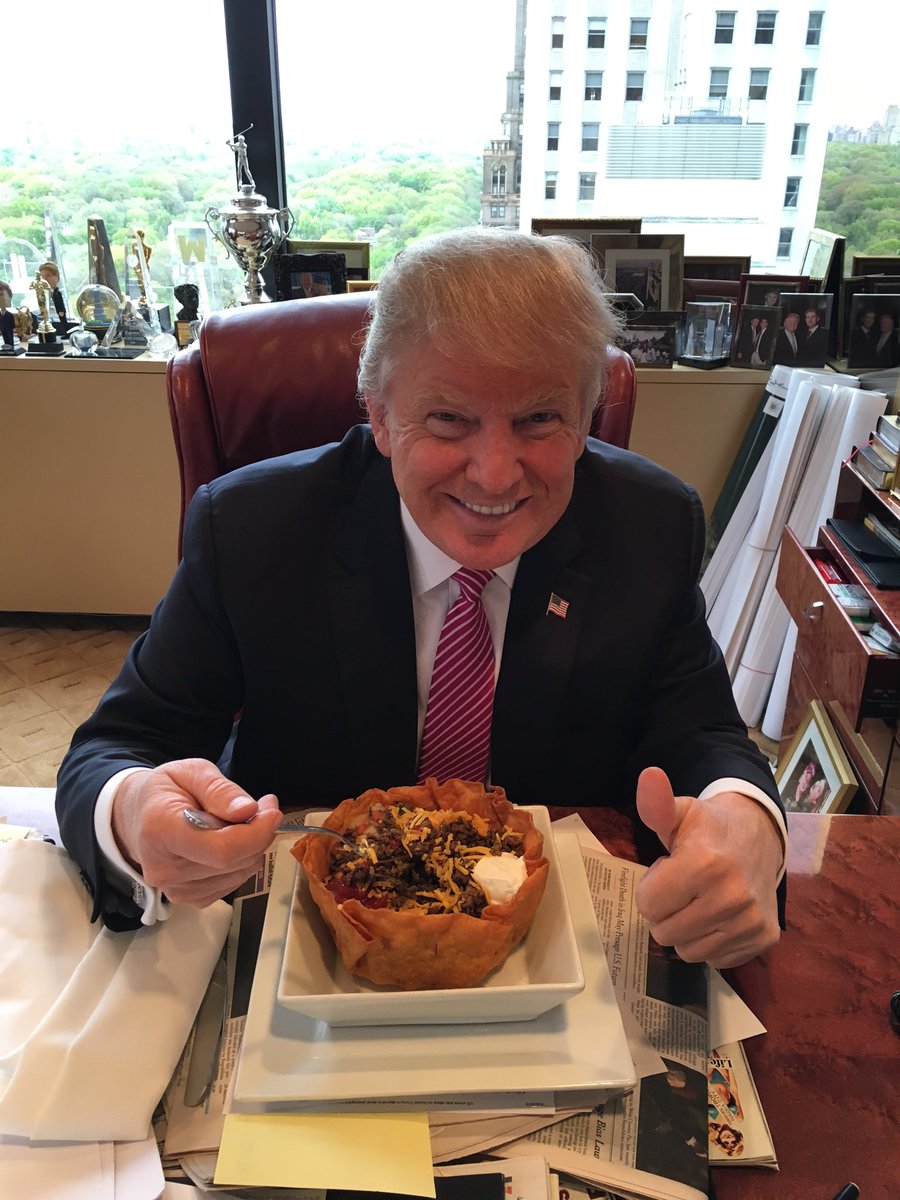A modern-day Joseph McCarthy: Donald Trump is the latest in a long line of American demagogues
The Republican nominee feeds on fear, paranoia and bigotry. We've seen this poisonous brand of populism before
BILL MOYERS AND MICHAEL WINSHIP, BILLMOYERS.COM
[*=center]
TOPICS: BEN TILLMAN, BILLMOYERS.COM, CHARLES COUGHLIN, HUEY LONG, JOSEPH MCCARTHY, KU KLUX KLAN, POLITICS NEWS
Donald Trump
(Credit: AP/Michael Conroy)
This piece originally appeared on BillMoyers.com.
There’s a virus infecting our politics and right now it’s flourishing with a scarlet heat. It feeds on fear, paranoia and bigotry. All that was required for it to spread was a timely opportunity — and an opportunist with no scruples.
There have been stretches of history when this virus lay dormant. Sometimes it would flare up here and there, then fade away after a brief but fierce burst of fever. At other moments, it has spread with the speed of a firestorm, a pandemic consuming everything in its path, sucking away the oxygen of democracy and freedom.
Today its carrier is Donald Trump, but others came before him: narcissistic demagogues who lie and distort in pursuit of power and self-promotion. Bullies all, swaggering across the landscape with fistfuls of false promises, smears, innuendo and hatred for others, spite and spittle for anyone of a different race, faith, gender or nationality.
In America, the virus has taken many forms: “Pitchfork Ben” Tillman, the South Carolina governor and senator who led vigilante terror attacks with a gang called the Red Shirts and praised the efficiency of lynch mobs; radio’s charismatic Father Charles Coughlin, the anti-Semitic, pro-Fascist Catholic priest who reached an audience of up to 30 million with his attacks on Franklin Delano Roosevelt and the New Deal; Mississippi’s Theodore Bilbo, a member of the Ku Klux Klan who vilified ethnic minorities and deplored the “mongrelization” of the white race; Louisiana’s corrupt and dictatorial Huey Long, who promised to make “Every Man a King.” And of course, George Wallace, the governor of Alabama and four-time presidential candidate who vowed, “Segregation now, segregation tomorrow, segregation forever.”
Note that many of these men leavened their gospel of hate and their lust for power with populism — giving the people hospitals, schools and highways. Father Coughlin spoke up for organized labor. Both he and Huey Long campaigned for the redistribution of wealth. Tillman even sponsored the first national campaign-finance reform law, the Tillman Act, in 1907, banning corporate contributions to federal candidates.
But their populism was tinged with poison — a pernicious nativism that called for building walls to keep out people and ideas they didn’t like.
Which brings us back to Trump and the hotheaded, ego-swollen provocateur he most resembles: Joseph McCarthy, US senator from Wisconsin — until now perhaps our most destructive demagogue. In the 1950s, this madman terrorized and divided the nation with false or grossly exaggerated tales of treason and subversion — stirring the witches’ brew of anti-Communist hysteria with lies and manufactured accusations that ruined innocent people and their families. “I have here in my hand a list,” he would claim — a list of supposed Reds in the State Department or the military. No one knew whose names were there, nor would he say, but it was enough to shatter lives and careers.
In the end, McCarthy was brought down. A brave journalist called him out on the same television airwaves that helped the senator become a powerful, national sensation. It was Edward R. Murrow, and at the end of an episode exposing McCarthy on his CBS series See It Now, Murrow said:“It is necessary to investigate before legislating, but the line between investigating and persecuting is a very fine one, and the junior senator from Wisconsin has stepped over it repeatedly. His primary achievement has been in confusing the public mind, as between the internal and the external threats of Communism. We must not confuse dissent with disloyalty. We must remember always that accusation is not proof and that conviction depends upon evidence and due process of law. We will not walk in fear, one of another. We will not be driven by fear into an age of unreason, if we dig deep in our history and our doctrine, and remember that we are not descended from fearful men — not from men who feared to write, to speak, to associate and to defend causes that were, for the moment, unpopular.”There also was the brave and moral lawyer Joseph Welch, acting as chief counsel to the US Army after it was targeted for one of McCarthy’s inquisitions. When McCarthy smeared one of his young associates, Welch responded in full view of the TV and newsreel cameras during hearings in the Senate. “You’ve done enough,” Welch said. “Have you no sense of decency, sir, at long last? Have you left no sense of decency?… If there is a God in heaven, it will do neither you nor your cause any good. I will not discuss it further.”
It was a devastating moment. Finally, McCarthy’s fellow senators — including a handful of brave Republicans — turned on him, putting an end to the reign of terror. It was 1954. A motion to censure McCarthy passed 67-22, and the junior senator from Wisconsin was finished. He soon disappeared from the front pages, and three years later was dead.
Here’s something McCarthy said that could have come straight out of the Trump playbook: “McCarthyism is Americanism with its sleeves rolled.” Sounds just like The Donald, right? Interestingly, you can draw a direct line from McCarthy to Trump — two degrees of separation. In a Venn diagram of this pair, the place where the two circles overlap, the person they share in common is a fellow named Roy Cohn.
Cohn was chief counsel to McCarthy’s Senate Permanent Subcommittee on Investigations, the same one Welch went up against. Cohn was McCarthy’s henchman, a master of dark deeds and dirty tricks. When McCarthy fell, Cohn bounced back to his hometown of New York and became a prominent Manhattan wheeler-dealer, a fixer representing real estate moguls and mob bosses — anyone with the bankroll to afford him. He worked for Trump’s father, Fred, beating back federal prosecution of the property developer, and several years later would do the same for Donald. “If you need someone to get vicious toward an opponent,” Trump told a magazine reporter in 1979, “you get Roy.” To another writer he said, “Roy was brutal but he was a very loyal guy.”
Cohn introduced Trump to his McCarthy-like methods of strong-arm manipulation and to the political sleazemeister Roger Stone, another dirty trickster and unofficial adviser to Trump who just this week suggested that Hillary Clinton aide Huma Abedin was a disloyal American who may be a spy for Saudi Arabia, a “terrorist agent.”
Cohn also introduced Trump to the man who is now his campaign chair, Paul Manafort, the political consultant and lobbyist who without a moral qualm in the world has made a fortune representing dictators — even when their interests flew in the face of human rights or official US policy.
So the ghost of Joseph McCarthy lives on in Donald Trump as he accuses President Obama of treason, slanders women, mocks people with disabilities and impugns every politician or journalist who dares call him out for the liar and bamboozler he is. The ghosts of all the past American demagogues live on in him as well, although none of them have ever been so dangerous — none have come as close to the grand prize of the White House.
Because even a pathological liar occasionally speaks the truth, Trump has given voice to many who feel they’ve gotten a raw deal from establishment politics, who see both parties as corporate pawns, who believe they have been cheated by a system that produces enormous profits from the labor of working men and women that are gobbled up by the 1 percent at the top. But again, Trump’s brand of populism comes with venomous race-baiting that spews forth the red-hot lies of a forked and wicked tongue.
We can hope for journalists with the courage and integrity of an Edward R. Murrow to challenge this would-be tyrant, to put the truth to every lie and publicly shame the devil for his outrages. We can hope for the likes of Joseph Welch, who demanded to know whether McCarthy had any sense of decency. Think of Gonzalo Curiel, the jurist Trump accused of persecuting him because of the judge’s Mexican heritage. Curiel has revealed the soulless little man behind the curtain of Trump’s alleged empire, the avaricious money-grubber who conned hard-working Americans out of their hard-won cash to attend his so-called “university.”
And we can hope there still remain in the Republican Party at least a few brave politicians who will stand up to Trump, as some did McCarthy. This might be a little harder. For every Mitt Romney and Lindsey Graham who have announced their opposition to Trump, there is a weaselly Paul Ryan, a cynical Mitch McConnell and a passel of fellow travelers up and down the ballot who claim not to like Trump and who may not wholeheartedly endorse him but will vote for him in the name of party unity.
As this headline in The Huffington Post aptly put it, “Republicans Are Twisting Themselves Into Pretzels To Defend Donald Trump.” Ten GOP senators were interviewed about Trump and his attack on Judge Curiel’s Mexican heritage. Most hemmed and hawed about their presumptive nominee. As Trump “gets to reality on things he’ll change his point of view and be, you know, more responsible.” That was Sen. Orrin Hatch of Utah. Trump’s comments were “racially toxic” but “don’t give me any pause.” That was Tim Scott of South Carolina, the only Republican African-American in the Senate. And Sen. Pat Roberts of Kansas? He said Trump’s words were “unfortunate.” Asked if he was offended, Jennifer Bendery writes, the senator “put his fingers to his lips, gestured that he was buttoning them shut, and shuffled away.”
No profiles in courage there. But why should we expect otherwise? Their acquiescence, their years of kowtowing to extremism in the appeasement of their base, have allowed Trump and his nightmarish sideshow to steal into the tent and take over the circus. Alexander Pope once said that party spirit is at best the madness of the many for the gain of a few. A kind of infection, if you will — a virus that spreads through the body politic, contaminating all. Trump and his ilk would sweep the promise of America into the dustbin of history unless they are exposed now to the disinfectant of sunlight, the cleansing torch of truth. Nothing else can save us from the dark age of unreason that would arrive with the triumph of Donald Trump.
Bill Moyers is managing editor of the new weekly public affairs program, "Moyers & Company," airing on public television. Check local airtimes or comment at www.BillMoyers.com.
Same old Liberal crap


"granny-over-a-cliff"



 Donald J. Trump
Donald J. Trump 

 Jeremy Diamond
Jeremy Diamond 















 ointer:Stop-SS--cheersgif:thumbsup2::nohead:
ointer:Stop-SS--cheersgif:thumbsup2::nohead:





